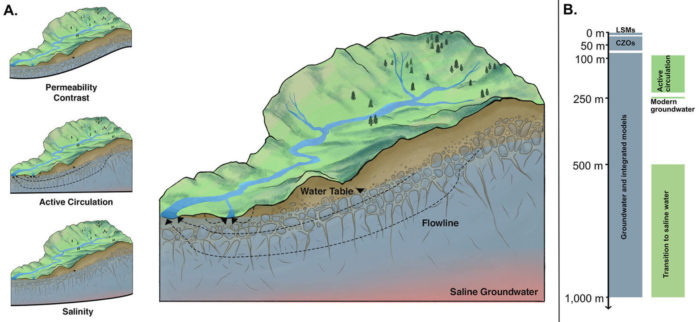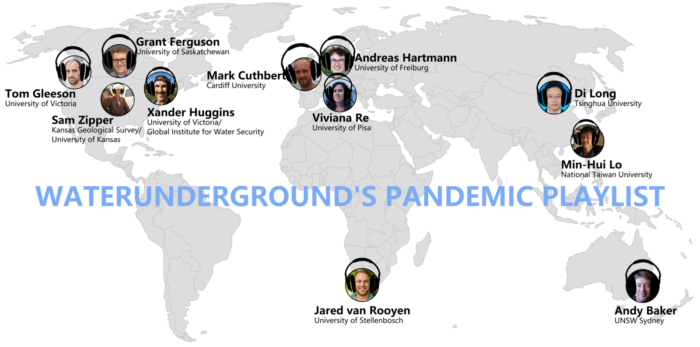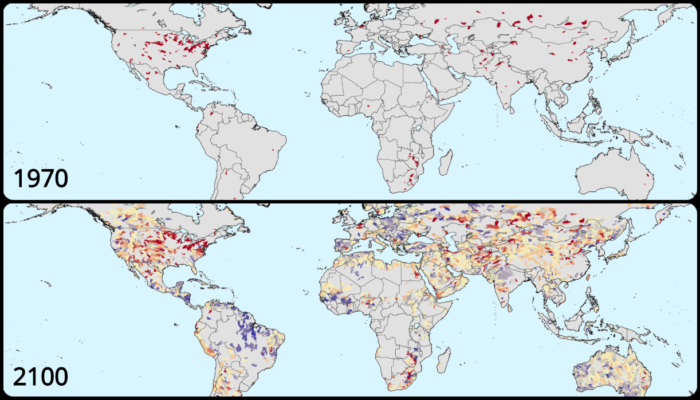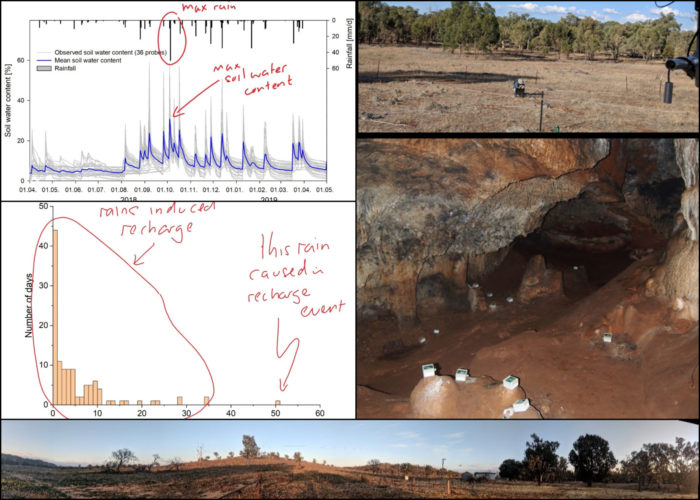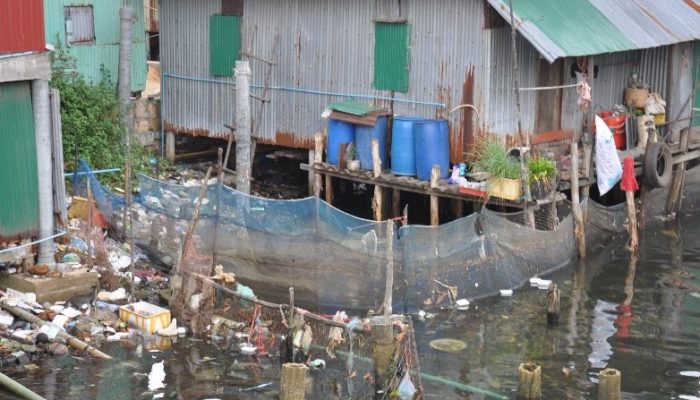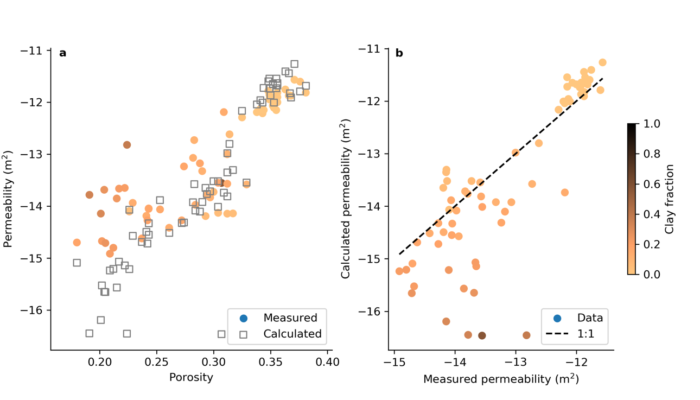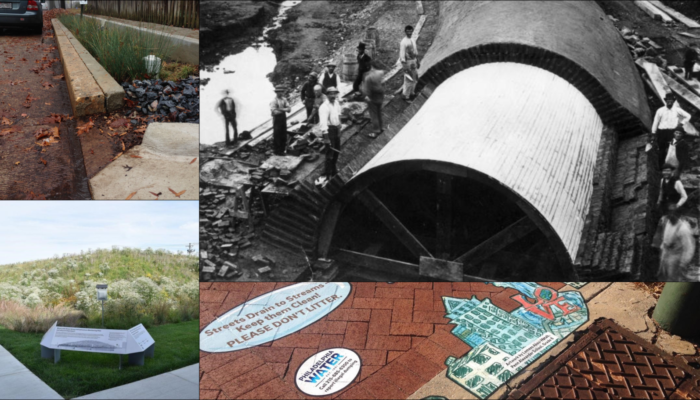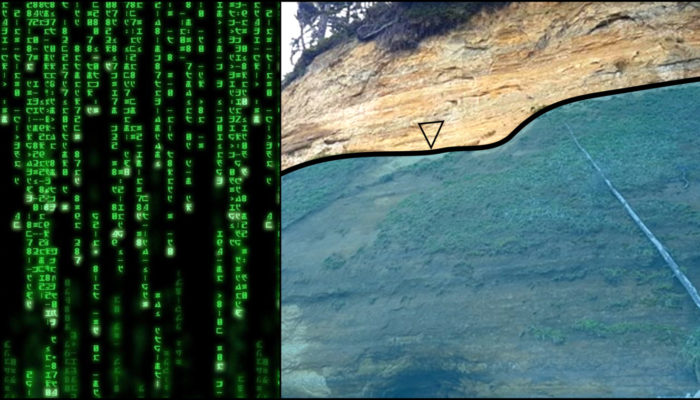n a recent commentary published in Water Resources Research, a group of us asked the question: “Where is the bottom of a watershed?” Discussions around the role of deeper groundwater in the hydrologic cycle within this group were triggered by a lecture that Jennifer McIntosh delivered at the University of Saskatchewan’s Global Institute for Water Security in 2018. The discussions around this lectu ...[Read More]
underground social solidarity: our #PandemicPlaylist
In our last post, the WaterUnderground community shared our roses, buds, and thorns of our current situations amid the coronavirus pandemic and a picture of our #StayAtHomeAndStaySafe view. As promised, in this post we’re sharing the next installment of this solidarity-building exercise of ours: our ‘pandemic playlist’. Each of the contributors from last post have provided a song ...[Read More]
underground social solidarity: rose, thorns and buds in the COVID-19 pandemic
Well, the world is certainly in a crazy time – one of the most enlightening tweets that I keep thinking about is: In a longer article, Klein asks a crucial question: can social solidarity replicate faster than the virus? So to encourage social solidarity in our dispersed global community of groundwater nerds, I suggested we share: A picture of our #StayAtHomeAndStaySafeView A song that is wo ...[Read More]
Groundwater pumping poses worldwide threat to riverine ecosystems
Post by Inge de Graaf, Assistant Professor of Hydrological Environmental Systems at the University of Freiburg. With the climate strikes happening all over the world, I sometimes wish I had a crystal ball that would allow me to look into the future. Or even better, a crystal ball that could show me different scenarios of what will happen if we change, or not. Well, I do not have a crystal ball, bu ...[Read More]
Groundwater and a ‘green drought’
Post by Andy Baker, professor in the Connected Waters Initiative Centre at UNSW Sydney, Andreas Hartmann, assistant professor in Hydrological Modeling and Water Resources at the University of Freiburg, and Romane Berthelin, PhD student in Hydrological Modeling and Water Resources at the University of Freiburg. Here in New South Wales (NSW) in southeastern Australia, a long-running drought continue ...[Read More]
Shedding light on the invisible: addressing potential groundwater contamination by plastic microfibers
Post by Viviana Re, researcher at the University of Pisa in Italy. You can follow Viviana on Twitter at @biralnas. Until recently, the topic of plastic pollution was relatively unknown to the general public, although the problem was already under everyone’s very eyes. Indeed, plastic pollution has become one of the most debated issues over the last few years, in some cases even overshadowing ...[Read More]
A do-it-yourself Jupyter notebook to constrain sediment permeability
Post by Elco Luijendijk, Junior lecturer in the Department of Structural Geology and Geodynamics at Georg-August-Universität Göttingen and WaterUnderground founder Tom Gleeson (@water_undergrnd), Associate Professor in the Department of Civil Engineering at the University of Victoria. Most of the groundwater on our planet is located in sedimentary rocks. This is why it is important to know how eas ...[Read More]
Urban water underground: How green infrastructure makes it visible
Post by Theodore Lim, assistant professor of Urban Affairs and Planning at Virginia Tech. He researches the socio-hydrology of green infrastructure planning and implementation. In order for people to care about something, to value it, they have to be able to see it and experience it. This point should not be taken lightly. So much about decision-making and policy-making depends on how much public ...[Read More]
Quest for Sustainability of Heavily Stressed Aquifers at Regional to Global Scales: Upcoming Chapman Conference
Abstracts are due soon (July 10th) for the upcoming Chapman conference on groundwater sustainability on Oct 21-24, 2019 in Valencia, Spain. Hopefully this will be a rare opportunity where many of the leading people on groundwater sustainability will gather with a shared intention to share, discuss and debate scientific advances and encourage a pivot towards groundwater sustainability. A range of p ...[Read More]
Doing Hydrogeology in R
Post by Sam Zipper (@ZipperSam), current Postdoctoral Fellow at the University of Victoria and soon-to-be research scientist with the Kansas Geological Survey at the University of Kansas. Using programming languages to interact with, analyze, and visualize data is an increasingly important skill for hydrogeologists to have. Coding-based science makes it easier to process and visualize large amount ...[Read More]

